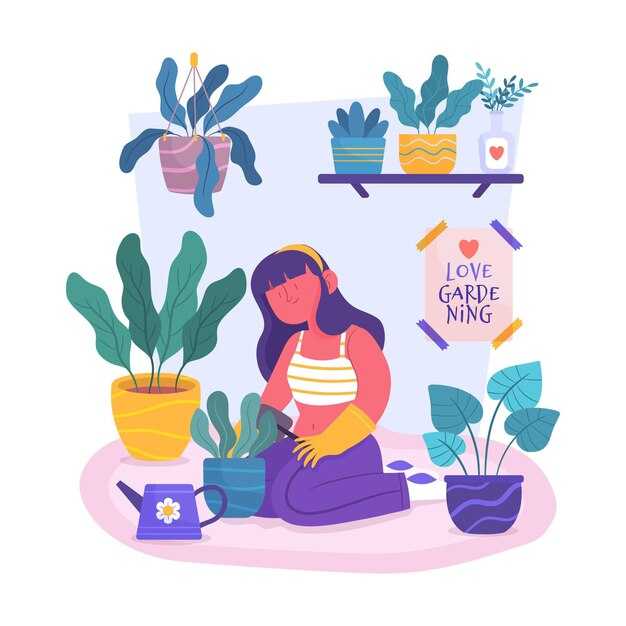One major issue affecting countless people is staying in relationships that, realistically, have little chance of flourishing. Many remain stuck because nobody has clearly reminded them what actually makes relationships succeed. If relationships constantly feel confusing, part of that frustration comes from not knowing which early warning signs to spot and steer clear of. Try to view relationships like a formula or a recipe: if two people set out to bake a cake together and then begin adding ingredients the recipe never called for, or remove key components the recipe required, the result might look like a cake but won’t taste good. The same principle applies to romantic partnerships—small changes to the “recipe” can destroy the outcome. This analogy is easy to accept when it’s about something silly like cake, but somehow it becomes harder to apply to one of the most important parts of life: our close relationships.
What is the purpose of a relationship? Is it to share connection and safety, to build a reliable partnership and do life together as a team, to add joy and value to each other’s lives, or to experience deeper intimacy? There are habits and behaviors that move people toward these aims—trust, connection, safety—and there are actions that chip away at them. The crucial question is whether a person is able and willing to look honestly at their own behavior, accept accountability for the ways they may be unintentionally harming the relationship, and whether their partner shares that willingness. It’s possible to go through a checklist of red flags, but real courage is required to step away from unhealthy patterns when that is the right choice.
Having some red flags in a relationship does not automatically mean it’s doomed, but it does call for caution and a careful reassessment. If someone is actively undermining the partnership and refuses to change, love or promises about the future don’t convert that into a recipe for success. It’s painful to end things, and nobody wants to break up out of convenience, but staying in dynamics where one person is the only one consistently doing the emotional labor isn’t healthy. Hoping someone will change without evidence is not a reliable strategy. The most useful approach is to set aside emotion temporarily and ask: is this relationship structurally positioned to thrive? If the answer depends on the other person changing and they either cannot or will not do that work, honest admission is necessary: the relationship cannot survive without a change. That confession—to yourself and, when it’s safe, to your partner—matters.
With that in mind, the following are relationship red flags that shouldn’t be ignored. First, inconsistency should not be tolerated. If someone is genuinely interested, it will be clear; wondering whether they care is itself a sign something is off. Sometimes the problem can be internal—anxious attachment can make someone fearful that good moments will abruptly turn bad, creating a need for constant reassurance that can push others away. It’s important to make sure a new relationship is beginning from a healthy place and not as a search for external validation. Equally, when a person alternates between intense affection and sudden withdrawal—love-bombing followed by coldness—that unpredictability creates anxiety. That pattern might come from commitment fears, emotional unavailability, or avoidant attachment; whatever the cause, early consistency matters. There’s nothing wrong with being head-over-heels, but taking things slowly and keeping healthy boundaries reduces the risk of investing in the wrong person.
Setting boundaries early—maintaining a life outside the relationship, seeing friends and family, and not letting a new partner dictate every move—helps preserve perspective. Non-negotiables about physical intimacy or sleeping over should be respected; a narcissistic or manipulative partner might shame or guilt someone for enforcing these limits, but a healthy partner honors them. In some past relationships people learned to people-please, abandoning their needs to avoid rejection. That pattern leads to bending over backwards for people who won’t reciprocate. Courage and discernment are required to recognize when a relationship has deviated from the healthy start it had and to acknowledge, even when it hurts, that one deserves better. Choosing to return to single life after hoping a relationship would work is one of the hardest moves, but remaining in a toxic partnership often produces a deeper loneliness than being single ever will.
Now, some rapid-fire red flags to watch for, because these topics can otherwise get long and, let’s be honest, repetitive. 1) If someone paints every ex as “crazy” or claims they were always the victim and never at fault, that’s a warning sign. A mature person will at least be willing to consider what role they played in past relationship dynamics and speak about their exes with some measure of respect. If every previous partner was wholly to blame, ask how that person talks about others when things go wrong. 2) Notice how they treat people who can do nothing for them—servers, clerks, strangers. Are they kind and respectful? Do they handle conflict with friends and family in a reasonable way or do they lash out and call others idiots when frustrated? The behavior they show toward others is the behavior they will show toward you during conflict. 3) Patterns of lying are serious. Habitual dishonesty shouldn’t be minimized; trust your instincts if something feels off. 4) You deserve a partner who celebrates your successes—someone who’s your cheerleader, not a competitor who needs to insert themselves into every achievement or downplays your wins. 5) Easily triggered jealousy and discouragement of your independence are major red flags. While past wounds can create trust issues, jealousy can lead to controlling behavior and will undermine safety and love. 6) Excessive secrecy around a phone can mean either massive trust issues or that something is being hidden. In committed relationships, a little openness about sharing moments—like showing a funny video or photo—should be possible without drama. 7) Substance use and addiction deserve careful attention early on. Decide what level of use is acceptable for you and be prepared to walk away if it begins to harm the partnership. Trying to be the person who “fixes” someone else’s addiction often leaves the partner who’s helping bearing nearly all the consequences. 8) If a partner has no life outside the relationship—no hobbies, ambitions, or career goals—that might be charming for a while but quickly becomes tedious and unfulfilling. 9) Unsolicited “helpful” criticism about your body, diet, or routines is a red flag. If someone frames constant advice as concern but uses it to make you feel insecure, that behavior suggests they don’t accept you as you are. Constructive encouragement is different from control dressed up as advice. 10) Conversely, discouraging self-improvement—accusing you of going to the gym to attract attention, for instance—is also insecure and manipulative behavior.
Conflict will happen in any close relationship, but how people fight can either make the partnership stronger or destroy it. Contempt, name-calling, and belittling are non-negotiable red flags; staying in a relationship where someone speaks to you that way has serious costs. Over time, being verbally demeaned can numb a person, lead to depression and physical sickness, and erode emotional health. No one deserves to be mocked, yelled at, or treated as worthless. People can come from traumatic backgrounds or difficult upbringings and still be held accountable for treating their partner with basic respect. If you wouldn’t tolerate someone talking to your boss or a colleague that way, you don’t have to accept it in your close relationship either.
Sometimes unhealthy behaviors feel familiar because they mirror what was modeled in childhood—parents who fought with contempt, for example. Familiarity doesn’t make it healthy, however, and it shouldn’t be used as an excuse to accept mistreatment. Love does not look like contempt, and settling for that prevents the relationship one truly wants and deserves. Feeling valuable and respected is fundamental, and nobody should be gaslit into thinking they are “too sensitive” or “too needy” for wanting basic mutual respect. For the right person, asking for reciprocity and clear communication about effort is not being needy; it’s asking for the baseline of mutual care. The right partner doesn’t make kindness conditional or expect favors as an IOU; they give without an immediate demand for repayment. When generosity is transactional, it’s rooted in insecurity and immaturity, not love.
A healthy relationship does not require walking on eggshells to avoid triggering explosions. It shouldn’t require constant anticipation of moods or ultra-careful phrasing to keep the peace. Too often people fall into the “healer” or “savior” role—prioritizing the other’s needs at the expense of their own, apologizing first, and sacrificing boundaries to maintain the connection. That approach ends at one point: disconnection and resentment. Self-abandonment does not lead to peace; it leads to bitterness. Recognize the pattern where being the fixer becomes habitual—doing so always ends with one person depleted and alone in their effort.
No relationship is perfect, but the goal is not perfection; it’s safety, connection, and mutual respect. Two people willing to serve one another in love, to listen when their partner expresses hurt or needs, to take responsibility for mistakes, and to consider how words and actions affect the other—those qualities make almost any relationship workable. Too often such traits are treated as rare or impossible to find, but they are the minimum, not an extravagance. If one partner consistently lacks the capacity to truly listen and hold space for the other’s vulnerability—responding with invalidation, rejection, or whipsaw accusations like “You’re so dramatic” or “You do this to me too”—a real connection will be impossible. You cannot feel close to someone when you don’t feel safe sharing feelings; intimacy requires respect for boundaries and accountability when someone slips up. If one partner always plays the victim and refuses to take responsibility, that prevents the healing and growth necessary for closeness.
Conflict can be an opening to deepen understanding or a wedge that drives partners apart. The difference lies in how it’s handled. Encouraging an environment where both partners can speak openly, vulnerably, and respectfully about their needs is vital. Try to keep short accounts—if something matters to the other person, it matters to you. The goal is to avoid allowing pain to fester alone; people should not feel punished for bringing up concerns. That does not mean constant complaining—it simply means making space for honest communication when something bothers someone. Conflict, when approached with the intent to understand, validate, and empathize before reacting, can build intimacy and safety. If one partner is willing to engage in that process and the other refuses or cannot, closeness will be limited because the body and mind naturally distance themselves from people who feel unsafe.
To reiterate: the existence of red flags is not an automatic death sentence for a relationship, but it does require slowing down, reflecting, and assessing whether the other person is genuinely committed to working on the partnership in mature, healthy ways. If they aren’t, then regardless of love or history, the relationship is unlikely to become mutually fulfilling. Pay attention to these warning signs rather than overlooking them because their danger wasn’t obvious at first.
Trust your instincts, hold yourself accountable, and continue learning and growing. You deserve relationships that are respectful, safe, and mutually nourishing. Notice what feels wrong, have the hard conversations, and make the choices that protect your well-being. You’re capable of making the right decisions for your life—listen to yourself, keep maturing, and don’t settle for less than the kind of partnership that honors you. Hopefully these insights help you avoid unnecessary heartbreak and move toward healthier connections with others.


 Never Ignore These 10 Relationship Red Flags…">
Never Ignore These 10 Relationship Red Flags…">

 Limerence Is Toxic Fix for Lonely, Joyless Life (4-Video Compilation)">
Limerence Is Toxic Fix for Lonely, Joyless Life (4-Video Compilation)">
 FWB & Attachment Styles: The Unexpected Connection">
FWB & Attachment Styles: The Unexpected Connection">
 التعرف على الصداقات السامة والهروب منها (مجموعة من 4 مقاطع فيديو)">
التعرف على الصداقات السامة والهروب منها (مجموعة من 4 مقاطع فيديو)">
 You’re NOT Overreacting — This Is Exactly How They Silence You">
You’re NOT Overreacting — This Is Exactly How They Silence You">
 ">
">
 10 Emotional Regulation Strategies for Everyday Life">
10 Emotional Regulation Strategies for Everyday Life">
 Is your Wife Addicted to Plants?">
Is your Wife Addicted to Plants?">
 Only the default parent will understand.">
Only the default parent will understand.">
 7 Habits That Easily Re-Ignited Her Arousal">
7 Habits That Easily Re-Ignited Her Arousal">
 Should I break up with him?">
Should I break up with him?">